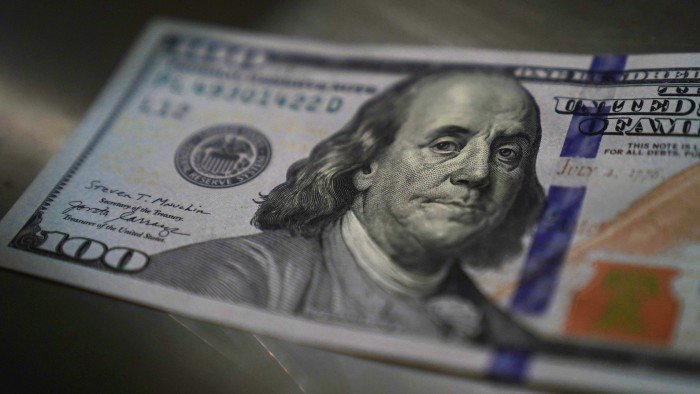Unlock the Editor’s Digest for free
Roula Khalaf, Editor of the FT, selects her favourite stories in this weekly newsletter.
Bank lending to the $1.6tn private credit industry may pose systemic risks to the US financial system during an economic downturn, the Federal Reserve’s Boston branch warned on Wednesday.
Boston Fed economists said in a paper that US lenders were exposing themselves to a new channel of risks by offering finance to non-bank groups that specialise in making loans directly to companies.
The report underscores how the booming private credit industry, led by groups such as Blackstone, Apollo and Ares, is forging increasingly close links with the much more tightly regulated traditional banking sector.
“Banks’ extensive links to the private credit market could be a concern because those links indirectly expose banks to the traditionally higher risks associated with private credit loans,” José Fillat, Mattia Landoni, John Levin and Christina Wang of the Boston Fed said in the report.
The report adds to a widening body of evidence that details how regulated banks have helped propel private credit lenders in the wake of the 2008 financial crisis, when safeguards were put in place to curtail the risks regulated lenders were taking.
Those rules discouraged banks from underwriting loans to businesses that were highly indebted or to companies that did not generate enough cash to service their debts. Banks instead began lending to private credit funds that underwrote those loans in their place, supercharging the industry’s growth.

The Boston Fed economists noted that the banking sector could be hit if defaults among companies that have sought out private loans are higher than borrowers in traditional syndicated loan or high-yield bond markets.
In traditional loan and bond markets, investors who buy the assets are at risk when a company defaults, but private credit groups are the ones that stand to lose if their borrowers fail to make good on their obligations.
Rating agency Fitch earlier this week reported that loans to non-bank financial institutions — a group that includes buyout shops and private credit funds — had jumped to roughly $1.2tn at the end of March, up 20 per cent from the year prior.
The Boston Fed said one of the main risks stemmed from the revolving credit facilities that banks provide private credit investment funds. These credit lines allow funds to draw down hundreds of millions or billions of dollars at will, which they can use to underwrite private loans to companies.
The rapid growth of this type of leverage has raised concerns for banking regulators, who have mostly watched on the sidelines as the private credit industry ballooned over the past decade. These funds are often lending to already heavily indebted, private equity-owned companies. Some of these businesses are struggling with high interest rates.
“Private credit lenders’ reliance on banks for liquidity could pose systemic liquidity risk to the banking sector if a sufficient number of private credit lenders . . . draw down on their bank credit lines simultaneously in response to adverse aggregate shocks,” the Boston Fed economists said.
The financing that banks are providing private credit funds is still deemed to be safer than the buyout loans they provided before the financial crisis, when a bank might agree to provide billions of dollars to finance a single deal. Today, their loans to funds are backed by dozens or hundreds of smaller loans, minimising their risk to any one business.
The Boston Fed also noted that the credit facilities banks were providing tended to be among private credit funds’ “most senior liabilities”, meaning they would only be dealt losses in “severely adverse economic conditions, such as a deep and protracted recession”.
